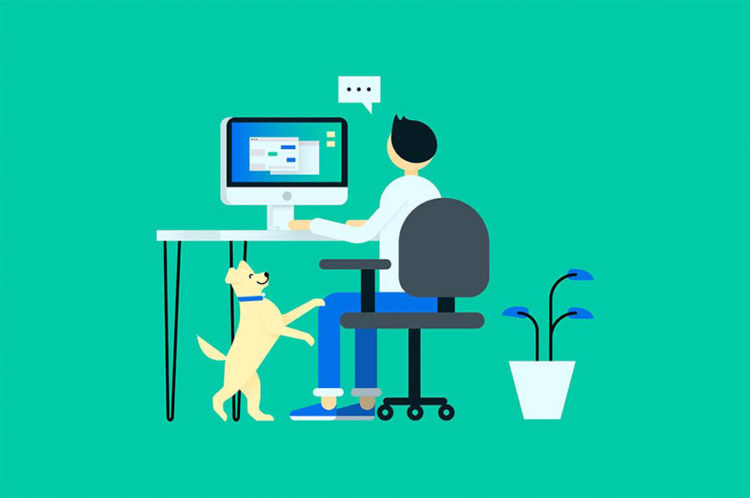How to Manage your Time when working from Home
Flexible working arrangements can help us achieve a better work-life balance, but it can come at a cost. Moira Dunne gives five tips to help you stay productive while working from home.

Many people are working from home these days. As employers offer flexibility, employees have started working from home to avoid their daily commute and often those who are self-employed set up a home office to keep their business costs down. Without the distractions of the regular office environment, people have a chance to think about and get things done if they can manage their time correctly.
The pitfalls in working from home
While working from home can be a great time-saver, it has its challenges. Distractions like household chores, clutter, family and access to TV, can get in the way. Many people who work from home can lose focus, causing stress and end up feeling overwhelmed with all the work they have not completed.
Here are five tips to help you stay productive when you work from home this summer.
1. Create a dedicated workspace
A dedicated workspace helps you switch into business mode. You may have an entire room available to convert to a home office but, if not, you can still create a practical workspace in a section of a room as long as it meets the following four requirements:
- Free from household clutter;
- Room for a quality chair and desk;
- Access to electrical sockets and wifi; and
- Enough room for storage of your documents.
2. Create a routine
One of the benefits of working at home is that there is no routine! However, this can harm your focus and productivity. So, create your own routine. Set a work start time and have target break and lunch times, too. This will prevent you from taking breaks whenever you feel like it and help you concentrate on the tasks at hand.
Before you start working for the day, get any non-work-related jobs done around the house, so they don’t distract you later.
3. Use a timer
It is essential to have a clear plan every day you work from home. What needs to get done first, second and third? The lack of noise at home encourages creativity and deep thinking, but without the natural interruptions of the office place, like questions from colleagues, meetings or lunch breaks, we can get too engrossed in one piece of work.
Use a timer to set an end time for individual pieces of work. Once the time is up, check your plan and decide whether to continue the current job or move on.
4. Manage others
If you only work from home occasionally, there can be a novelty factor. If you are not careful, office interruptions can be replaced by interruptions from well-intended friends or family. Be assertive (but polite) and let people know that you have deadlines. A useful approach is to say “when” instead of “now” if someone wants to see you. Divert a catch-up to your planned lunch or coffee break so you can keep your routine on track.
5. Change your scene
Sometimes working at home can be too quiet and even feel claustrophobic. When this happens, change the scene by taking your laptop to another location such as a local coffee shop or spacious hotel lobby. Studies have shown that public background noise is not distracting. In fact, it can help you achieve a deep level of focus.
have shown that public background noise is not distracting. In fact, it can help you achieve a deep level of focus.
